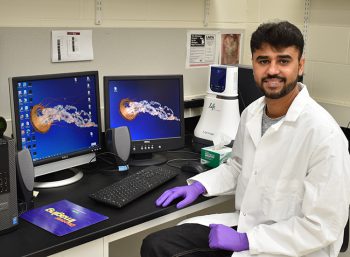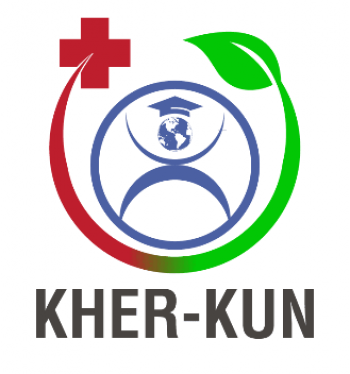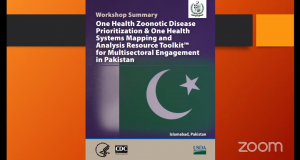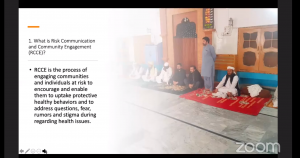Of the many lessons reinforced during 2020 and 2021, the idea that animal and human health are interconnected has sat at the forefront of many public health discussions. This topic is one of many recently addressed by a Spartan scientist looking to make a difference.

Kher-Kun, which means “well-wisher” in Arabic, is a nonprofit founded and headed by Dr. Azam Ali Sher, a student in the MSU College of Veterinary Medicine’s dual-degree doctoral program. The organization aims to provide "public health education to far-flung Pakistani villages,” and it does so with outreach efforts that include, among other avenues, webinars and virtual trainings.
Sher led a recent Kher-Kun initiative called “Student Leaders in Public Health in Pakistan,” which was enacted in collaboration with the U.S. Mission to Pakistan and the Pakistan-U.S. Alumni Network. The semester-long project was entirely coordinated and funded by Sher while he was working on his research and PhD.
The goal: recruit passionate students from diverse academic and regional backgrounds to train in public health topics with public health experts and Fulbright scholars overseas.
What is the Fulbright Program?
The Fulbright Scholar Program is a U.S. government-supported endeavor to promote the sharing of knowledge and culture between scholars and artists across the world. The Program awards funds to students, teachers, and professionals from many disciplines.
“Our mentors teach public health approaches to respond to emerging health issues, assess the risks associated with health emergencies, engage with local community leaders, and spread awareness of health topics,” said Sher.
More than 40 students from Pakistan were recruited. They worked with three U.S.-based public health professionals and 6 additional Fulbright alumni, including members of the World Health Organization, the Food and Agriculture Organization of the United Nations, and students and faculty from universities across the United States. Speakers included medical doctors, veterinarians, environmental scientists, epidemiologists, science communicators, and policy experts.
“After training was complete, our recruits went on to engage more than 1,950 other students from more than 40 cities across Pakistan,” said Sher, himself a Fulbright alum. “This was a short-term program, but it shows how by empowering students, we can build a force against the country’s public health issues. Moreover, the program could be a powerful way to develop international educational and professional relationships.”
Pandemic enters the scene
A global approach

Though Kher-Kun’s work most extensively targets communities in Pakistan, it has a global reach. One presentation, for example, on the concept of One Health, was attended by more than 260 people from countries in Asia, Africa, Europe, and North America. One Health is the idea that tackling health-related issues requires a collaborative, transdisciplinary, and global approach across human, environmental, and animal health.
Though Kher-Kun had no shortage of topics to address with students, 2020 brought one of the ultimate public health conundrums: a pandemic.
A key objective of Sher’s project became teaching students about preventing and controlling the spread of the coronavirus that causes COVID-19. A huge part of that: forming compelling awareness messages to their local communities.
In student-led seminars, participants discussed the prevalence, transmission, prevention, and management of infectious and non-infectious diseases. In addition to COVID-19, seminars addressed dengue fever, zoonotic diseases, diabetes, rabies, addiction, and more.


“This helped all participating students to spread awareness of COVID-19 and other health conditions by engaging their fellows and friends from across the country,” said Sher.
Beyond virtual seminars, students got hands-on by preparing educational presentations, blogs, podcasts, infographics, and posters.
Based on feedback on the first student-led project, Sher and his project collaborators plan to launch another collaborative project in 2021 to empower more students from different countries, building a worldwide community to address complex, emerging global health challenges.
As a dual-degree doctoral student, Sher conducts research with a team in the laboratory of Dr. Linda Mansfield, University Distinguished Professor and Albert C. and Lois E. Dehn Endowed Chair for the MSU Department of Large Animal Clinical Sciences. Read about some of their work here.
With a keen interest in research on infectious diseases and antimicrobial resistance, Dr. Sher was awarded a Witter Fellowship for the 2020-21 academic year. The research fellowship is designed specifically to support the study of infectious diseases.
